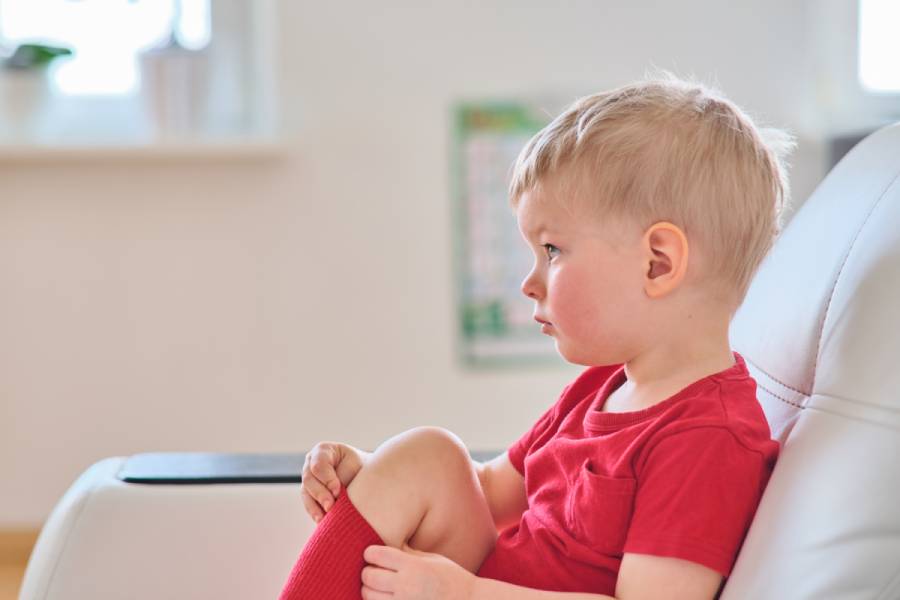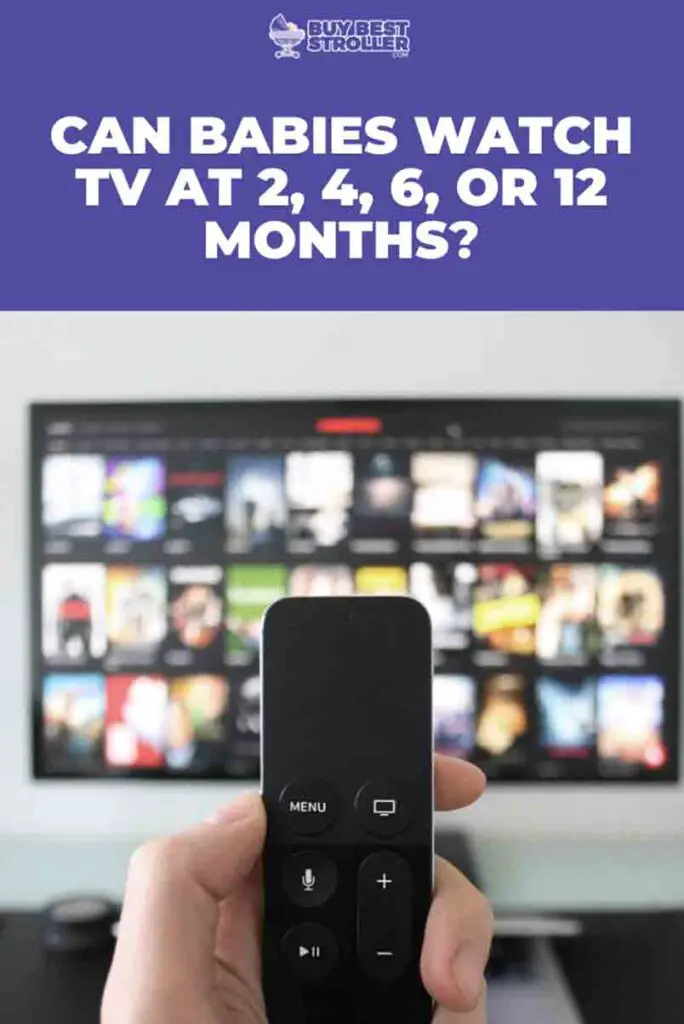It is not recommended for babies 6 months of age to watch TV. Screens (light resolution) for young children are harmful to their vision, as they still develop.
The American Academy of Pediatrics (AAP) reports that watching a screen can negatively affect a child’s brain development, language development, reading skills, and short-term memory. It can also contribute to sleep problems and attention problems.
Babies learn much better when they interact with people in real life rather than people on screens.
Can Babies Watch TV At 2 Months?
No, babies at 2 months old can’t watch television. A baby’s vision may have just developed at this age, so any bright object or color can fascinate them. He/she is too young and too small to develop addictions.
Studies also have proved that a 2-month-old baby cannot differentiate between colors and can only see clearly about 8 to 12 inches away from his/her face. Perhaps it is not the picture on the mobile or television, but the sound that might be attracting him. You can test this by playing music and seeing how he reacts.

At this stage, it is better to keep them away from gadgets, as these would be harmful to them. You should talk or sing to your child, and cuddle him. You can also give them a musical toy if they like sounds.
You keep your kids busy with physical activities like painting, dancing, and drawing. TV and phone would be harmful to his or her developing eyes since they are still developing.
Can Babies Watch TV At 4 Months?
No, 4-month-old babies can’t watch TV or other screen devices, as studies have shown that it is harmful. Babies’ eyesight is not good enough for them to see TV at 4 months. Actually, the baby starts to stare at moving things as soon as he or she is four months old. They look at things that move and observe them constantly. However, this is unsafe for their eyes.
It’s a great idea to let your baby start learning how to entertain themselves around 4 months of age through toys, books, and other activities. You’ll greatly encourage their development this way.
Can Babies Watch TV At 18 Months?
The AAP (American Academy of Pediatrics) recommends that babies under 18 months of age should avoid television and other screen-based devices. Because a baby’s brain develops most rapidly during the first two years of life.
Your baby goes through a lot of changes during the first two years as a baby develops cognitive, language, motor, and social-emotional skills.
A baby is 18 months to 24 months old, and he or she can start enjoying screen time with a parent or caregiver. When an adult reinforces learning for infants at this age, they can learn.
Between the ages of 18 and 24 months, babies can use high-quality learning apps on their smartphones or tablets for a few minutes a day.
Kids ages 2 and 3 can watch high-quality educational programming for up to an hour each day.
What Are The Negative Effects Of Watching TV On Babies?
According to various studies and experts, watching television regularly can lead to negative effects on children’s long-term health. Here are some negative effects of viewing television on your infant:
1. Affect brain development
The baby could miss out on real-life activities if they watch a lot of television. It may negatively influence brain development in the long run. According to research, there is no benefit to your baby from watching television, and you shouldn’t allow him/her to watch TV.
2. Affect healthy eyesight
When watching television, children blink less often than adults. Constant watching the television can cause eye redness, eye pain, and blurred vision.
Watching television regularly may exacerbate all short-term eye and vision problems. It may have a higher chance of the baby developing myopia (nearsightedness) early in life, so it is imperative that they wear prescription glasses.
3. Speech and expressive language delays
According to a 2017 study, putting a baby in front of a screen could delay language development. Babies learn best when they are interacting with their parents. Nevertheless, watching TV while babies are young might take away their time, which could have been used for improving their language skills, thus affecting their speech and language skills.
4. It may affect sleep
Regular TV watching could affect the baby’s sleep cycle and bedtime routine. AAP reports that children exposed to more media during their early childhood sleep less per night.
They also note that infants exposed to screen media in the evening have shorter sleep durations than infants who do not have evening screen exposure.
5. Affect beneficial activities
Your facial expressions, tone of voice, body language, and even your touch teach your baby more than television. If your baby spends too much time watching television, you would have less time for playing games and activities that would help him develop his developmental milestones.
How Can You Distract Your Baby From Watching Television?
Instead of watching TV, parents can engage their children in beneficial activities. Here are some activities you can do with your baby:
- Engage the baby in activities on a daily basis
- Read books together, including board books, picture books, and stories with texture/tactile elements.
- Alternatively, you can play classic games like peek-a-boo.
- Take a walk outside and look for some animals. Talk about the creatures that you see and point them out.
- Sing and dance while holding your baby.
- When babies play with sensory toys and games, they won’t need to watch television.
- Teach your baby rhymes, lullabies, and songs




